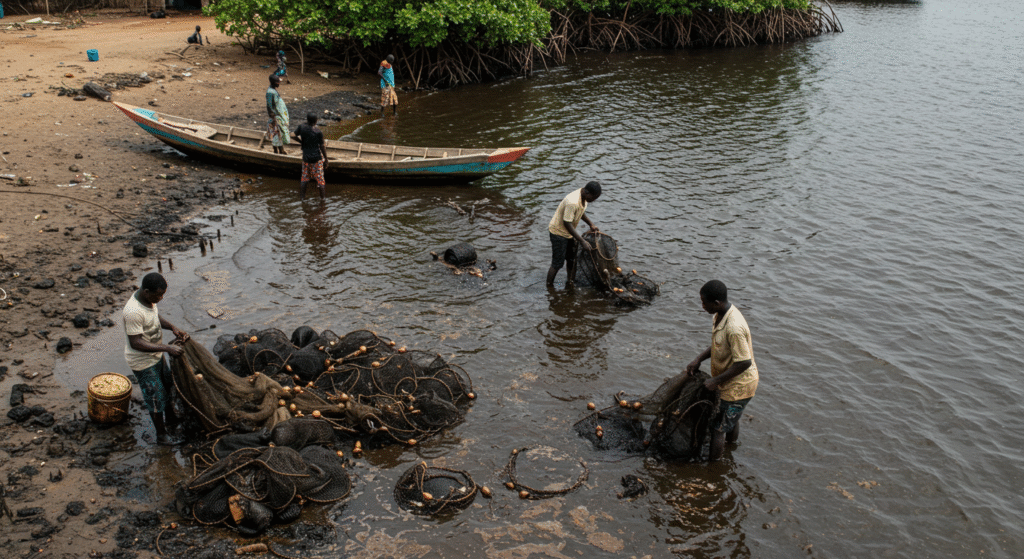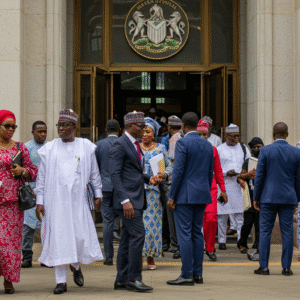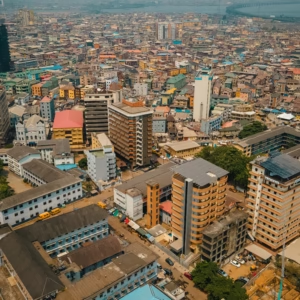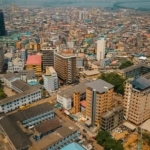Concrete examples of lost opportunity
The electricity “fix” that didn’t fix power
From 1999 onward, governments touted massive spending to reform the power sector — tens of billions of dollars were committed to privatization, new plants and reforms. Yet Nigeria still struggles to provide reliable power: generation rarely exceeds a few thousand megawatts for a population of over 200 million, and frequent outages persist. Multiple audits show mismatch between funds disbursed and measurable capacity gains. Observers call this a classic case of fiscal spending with weak project monitoring and corruption. ScienceDirectEnergy Focus Report
Subsidy-era fraud and the fiscal hole
Years of fuel subsidy payouts created an opaque market where importers, middlemen and cronies built large returns. Audits have shown phantom importers claiming subsidy reimbursements, while the social benefit for ordinary Nigerians remained limited. Investigation and reporting have repeatedly highlighted this as a primary mechanism for the diversion of public funds. Energy Focus Report
Malabu / OPL 245: the price of opaque deals
The OPL 245 saga involved multinational oil companies, shell companies, and alleged payments routed to political actors. The tangled litigation and settlements across jurisdictions illustrate how resource deals can bypass domestic accountability and line private pockets at national expense. International reporting by Reuters and others traced the deal and subsequent legal actions. Reuters
The human cost — poverty, jobs and environment

The macro numbers mask real human suffering. The 2022 Multidimensional Poverty Index for Nigeria found about 62.9% (≈133 million) of Nigerians are multidimensionally poor, experiencing deprivations in education, health, housing and living standards. Meanwhile, unemployment and underemployment remain serious challenges for youth and women. National Bureau of StatisticsOphi
Niger Delta: extraction without development
The people of the Niger Delta live alongside oil fields but suffer environmental degradation: oil spills, gas flaring, destroyed fisheries and polluted farmland. Investigative features in reputable outlets (e.g., Financial Times) document years of pollution and weak remediation, even as oil firms exit or reorganize local operations. The environmental and health costs are long-term and frequently borne by communities rather than companies or the state. Financial Times
Expert voices & institutional analysis
NEITI: Reconciliations by NEITI repeatedly exposed unpaid company liabilities and unreconciled transfers — concrete evidence that large sums in the system did not reach the treasury. NEITI has also helped recover some funds through disclosure and follow-up. EITIArise News
Chatham House / International analysts: Academic and policy research (e.g., Chatham House) characterizes Nigeria as a textbook case of the resource curse — where extractive wealth strengthens patronage, weakens institutions and fuels criminal economies like oil theft. These reports call for institutional reforms and international cooperation to tackle transnational illicit flows. Chatham House+1
World Bank and IFIs: Multilateral institutions have flagged both the scale of revenue dependence on oil and the need for diversification, stronger taxation, and transparency to avoid fiscal shocks when oil prices fall. World Bank data also highlights complexities in measuring unemployment and informal sector dynamics in Nigeria. World Bank Open Data
Why reforms repeatedly fail — political economy
The pattern emerges from incentives: when state budgets depend on easily captured oil rent, political actors face strong incentives to capture and redistribute those rents to maintain loyalty. This reduces the incentive to build broad taxation systems, invest in public goods, or pursue accountability. Political settlements — where elites divide the spoils — explain why reforms are often enacted on paper but weakly implemented in practice. Scholarly work on the resource curse explains these dynamics clearly. Chatham Houseifri.org
Signs of progress — transparency and recoveries
Despite the grim picture, there are glimmers of change:
- NEITI’s work has resulted in recoveries and increased public awareness: disclosures have helped identify liabilities and prompt recoveries. Arise News
- Regulatory reforms: NUPRC and other regulators published more robust production and reconciliation reports (e.g., updated NUPRC annual report), improving data availability. nuprc.gov.ng
- Security gains: In 2024–2025 authorities reported improvements in pipeline security and reduced vandalism in some corridors, with suggested pipeline availability and production recovery cited by state actors and reporting. Independent verification remains important. Reuterspipeline-journal.net
These developments don’t erase decades of leakage, but they provide tools — audits, public disclosures, stronger regulators — that can be scaled.
What a fairer oil legacy would look like
Turning extractive revenue into national development requires a multi-pronged approach:
Diversify the economy — invest in agriculture, manufacturing and renewables to reduce reliance on volatile oil rents. World Bank and policy research stress this repeatedly. World Bank Open Data
Transparent reconciliations and public data — full NEITI-style audits published and acted upon. EITI
A properly legislated sovereign wealth fund with clear rules, independent oversight and limits on ad hoc withdrawals; replacing ad hoc ECA-like governance. Investopedia
Strong contracting and fiscal terms — renegotiate contracts where evidence shows unfavourable terms; ensure real taxation and royalties are collected. EITI
Tackle oil theft with community development — enforcement alone won’t work; communities must benefit directly via jobs and infrastructure. Chatham House and others emphasize combining security operations with community incentives. Chatham House
Sources & further reading (selected)
- NEITI — Oil & Gas Audit Reports (NEITI-Oil & Gas Audit, 2021; consolidated reports 2022–2024). NEITIEITI
- NUPRC — Updated 2023 Annual Report (production and regulatory notes). nuprc.gov.ng
- Chatham House — “Nigeria’s Criminal Crude” and resource curse analyses. Chatham House+1
- BusinessDay / NEITI reporting — “7.7m barrels of crude oil stolen from Nigeria in 2023” (NEITI data summary). Businessday NG
- Financial Times — reporting on oil pollution and legacy liabilities in the Niger Delta. Financial Times
- Investopedia — background on the Excess Crude Account and governance issues. Investopedia
- World Bank Data — Nigeria country data and commentary on macro risks and labor markets. World Bank Open Data
From extraction to inclusion
The figures are stark: decades of oil revenue have not translated into broad-based prosperity because of weak institutions, deliberate looting, subsidies and theft, poor contracting and environmental neglect. Yet the same country that exported crude can still choose a different path — one that protects revenue, invests in people, and diversifies the economy.
The technical tools exist — audits, a properly capitalized sovereign wealth fund, contract transparency, and community investment programs — but they require one missing ingredient: political will. If Nigeria can pair institutional reforms with inclusive policies that directly link resource rents to education, health, clean energy and jobs, then the story of the oil curse can become a story of recovery and transformation.
Nigeria’s Oil Curse — Where Trillions Vanished
Despite massive earnings from crude oil, Nigeria’s extractive wealth failed to transform national development due to subsidy fraud, opaque deals, oil theft, and weak governance. Recent transparency efforts (NEITI, regulators) are positive but need enforcement and political will.
4.5 / 5
Pros
- Oil revenues built foreign reserves and created strategic state capacity.
- NEITI and reforms improved transparency and produced recoveries in some cycles.
Cons
- Billions lost to theft, fraud and opaque deals.
- Environmental damage and local impoverishment in oil regions.






